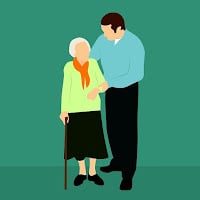By Dulcie McCallum and Steve Estey
The value of Canada’s stock on the global human rights market is about to plummet. In what could be considered a perverse sense of timing, the volley between the House of Commons and the Senate on Bill C-7 — which proposes fundamental changes to criteria for medical aid in dying (MAiD) — coincides with the week that marks the eleven-year anniversary of Canada ratifying the Convention on the Rights of Persons with Disabilities.
As the special advisors to, and members of, Canada’s delegation to the United Nations when negotiating the Convention on the Rights of Persons with Disabilities, we feel compelled to speak out because Canada is on the threshold of committing a serious legal breach. Prime Minister Trudeau needs to be aware that he is placing his reputation as a staunch supporter of human rights, both nationally and internationally, in serious jeopardy.
We write to remind the Prime Minister and his government of Canada’s international legal obligations under the Convention on the Rights of Persons with Disabilities, which our country has signed and ratified, along with our commitments under the Universal Declaration of Human Rights and the International Covenant on Civil and Political Rights, the very bedrock of the whole United Nations system.
At the heart of these legal obligations is the right to equality and non-discrimination — which means, the right to the equal benefit and protection, before and under the law, without discrimination based on disability.
Bill C-7 would be in direct contravention of the legal obligations under the Convention, which guarantees people with disabilities the protection of the law on an equal basis with others. How? Because the bill allows for differential treatment based solely on disability by extending access to medical assistance in dying to persons with a disabling condition, but whose death is not reasonably foreseeable.
Bill C-7 will, if passed, make it entirely legal to end a person’s life simply because they have a disability. The fact that Parliamentarians cannot see that Bill C-7 turns the right to equality and non-discrimination on its head is of grave concern.
This legislative initiative reinforces negative stereotypes and perceptions about people who live with a disability or who are aging, giving us a law that is predicated on discriminatory and harmful ablest and ageist criteria. The legislative drafters have penned a cruel twist into the Criminal Code by deeming ease of access to medical assistance for people with a disability as a benefit.
We are not the first tBill C-7 will, if passed, make it entirely legal to end a person’s life simply because they have a disability.o warn the Prime Minister that this legislation is in direct contravention with international law. A cohort of UN Special Rapporteurs and experts have issued a global expression of alarm. Their statement, issued early this year, said in part; “Disability should never be a ground or justification to end someone’s life directly or indirectly.”
The international experts went on to make the specific point that if the law allows this differential treatment, it would “institutionalize and legally authorize ableism” in direct contravention of the Convention.
At stake is the very principle of equality and how it applies to persons with disabilities, a result that will have a long-term chilling effect. If you make a special case for applying different and discriminatory rules for people with disabilities in one instance, you will unleash a legal monster that has the potential to devour rights in other contexts.
Bill C-7 seeks to reformulate ‘death’ as a benefit but only for people with a disability or debilitating condition. The fear of history repeating itself lingers and so it ought to. As disability rights activist Catherine Frazee puts it, “Nothing about medically assisted death is ahistorical.”
The trio of international experts have posed three questions asking Canada to explain the pending breach of its international legal obligations. At the time of writing, Canada has not answered. Maybe while struggling to answer the experts’ questions, the government can ask itself one simple question: does it believe that the lives of Canadians with disabilities are worth less than others?
—
This post was previously published on QUOI Media and is republished here under a Creative Commons license.
***
You Might Also Like These From The Good Men Project
 Compliments Men Want to Hear More Often
Compliments Men Want to Hear More Often  Relationships Aren’t Easy, But They’re Worth It
Relationships Aren’t Easy, But They’re Worth It  The One Thing Men Want More Than Sex
The One Thing Men Want More Than Sex  ..A Man’s Kiss Tells You Everything
..A Man’s Kiss Tells You Everything Join The Good Men Project as a Premium Member today.
All Premium Members get to view The Good Men Project with NO ADS.
A $50 annual membership gives you an all access pass. You can be a part of every call, group, class and community.
A $25 annual membership gives you access to one class, one Social Interest group and our online communities.
A $12 annual membership gives you access to our Friday calls with the publisher, our online community.
Register New Account
Log in if you wish to renew an existing subscription.
Username
First Name
Last Name
Password
Password Again
Choose your subscription level
- Yearly - $50.00 - 1 Year
- Monthly - $6.99 - 1 Month
Credit / Debit Card PayPal Choose Your Payment Method
Auto Renew
Subscribe to The Good Men Project Daily Newsletter By completing this registration form, you are also agreeing to our Terms of Service which can be found here.Need more info? A complete list of benefits is here.
—
Photo credit: Gregory Akinlotan from Pixabay
The post Bill C-7 Is a Matter of Life and Death appeared first on The Good Men Project.
Original Article










